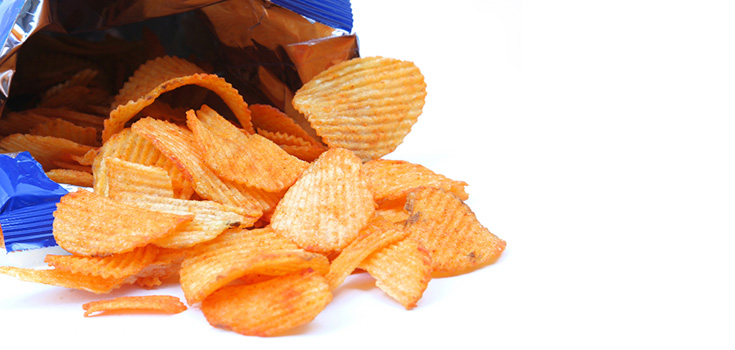Pesticides, Bugs and Toxins May Be Lurking in Your Food

Catherine Pearson
The Huffington Post
Think you really know what’s in your food? Think again. According to an upcoming report on the TV show “The Doctors,” when Americans reach for a snack, they’re likely taking in more than they bargained for.
Case in point: In California, recently, several potato chip companies settled with the state to reduce the levels of acrylamide. The chemical is on its Proposition 65 list of those known to cause cancer or “reproductive toxicity,” which the state’s Office of Environmental Health Hazards defines as birth defects and other reproductive harm. Acrylamide is reportedly formed during the manufacturing process, when certain foods — particularly starchy ones — are baked, fried or roasted.
“That shocked me quite a bit,” admits Dr. Travis Stork, an emergency room physician and one of the co-hosts of “The Doctors.” “I was unaware that there was acrylamide in chips.”
Another shocking finding: the claim that there are measurable quantities of bug and rodent parts in foods — with some saying that Americans eat an estimated one pound of bug and rodent parts each year without necessarily knowing it.
Still that finding, however stomach turning it is, is not necessarily Stork’s biggest concern.
“Yes, it’s disgusting and shocking and no, no one wants to go in and eat a bug leg or a bug wing when they eat a snack,” he says, “but I would argue as a physician that perhaps sometimes there are other things that you also can’t see that are more harmful to your health.”
Those “things” are pesticides, which Stork says people should try and avoid as much as possible. He suggests buying organic, particularly when it comes to the so-called “dirty dozen” of fruits and vegetables, as determined by The Environmental Working Group.
“It’s a fine line, because you don’t want to eat bug and rodent parts,” he says, “but you also don’t want to use too many pesticides to try and eliminate that.”
Which fits into Storks overall assessment that while it is perhaps the most surprising, the most ick-worthy ingredients in foods will catch people’s attention, simple, more well-known additives can actually cause the most damage.
“The main takeaway is that you should really limit eating overly processed foods,” he says. “And when you do eat them, it’s important to look at the ingredients. We can sit here and talk about these [shocking] chemicals, but if the first ingredient is sugar, that’s probably a better tip off that what you’re eating could lead to poor health consequences.”
